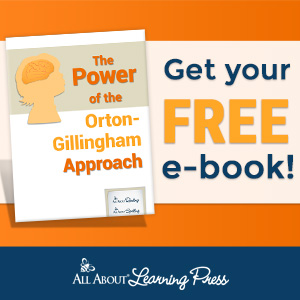Unraveling the Power of Orton-Gillingham in Reading Instruction
Did you know that reading is not an innate skill for our brains?
It’s true! Reading is not a natural thing, it's not a natural process. We were not born to understand written language the way we were born to understand oral language. What!! That is why so many kids find learning to read such a challenge!
While some kids may seamlessly pick up reading, the majority need explicit instruction to grasp the rules of written language. Enter Orton-Gillingham (OG), an approach to reading instruction that goes beyond mere memorization and delves into building a strong phonics foundation.
You have probably heard that most words in English just don't make sense and we need to just memorize the way they are spelled. That is not entirely true. Roughly 84% of English words are phonetic, which means that they follow predictable spelling patterns.
So, Orton-Gilingham (or OG) is an approach used to help students build a solid phonics foundation, through activities that are multi-sensory, structured, and sequential. OG is not a curriculum it is an approach to reading instruction.
The Orton-Gillingham approach to reading helps teach the connections between sounds and letters. It helps them understand the “why” behind the way words are read and spelled.
Have you ever wondered why some words, like "roof" and "fluff," have different numbers of the same letter at the end?
Orton-Gillingham addresses these questions by breaking down reading and spelling into smaller, manageable skills. Gone are the days when we want students to memorize a list of sight words or spelling words. YAY! This only stores them to their short-term memories and does not provide them with the tools to effectively read new unknown words.
To be more effective, reading and spelling need to be broken down into smaller skills and built upon those skills once students demonstrate proficiency. For example, students need to master short vowel sounds before moving on two long vowel sounds.
Orton-Gillingham was initially designed to support struggling readers and those with dyslexia. However, the benefits extend beyond this demographic, as all kids can thrive with explicit instruction. Studies have consistently shown that a robust Orton-Gillingham methodology significantly improves the reading skills of struggling readers.
Why am I talking about OG?!?!
Well…most of the stuff I talk about and suggest is based on the Orton-Gillingham approach! So they are highly effective activities to help YOUR kid become a reader, whether your child is just strating out OR is having a tough time.


